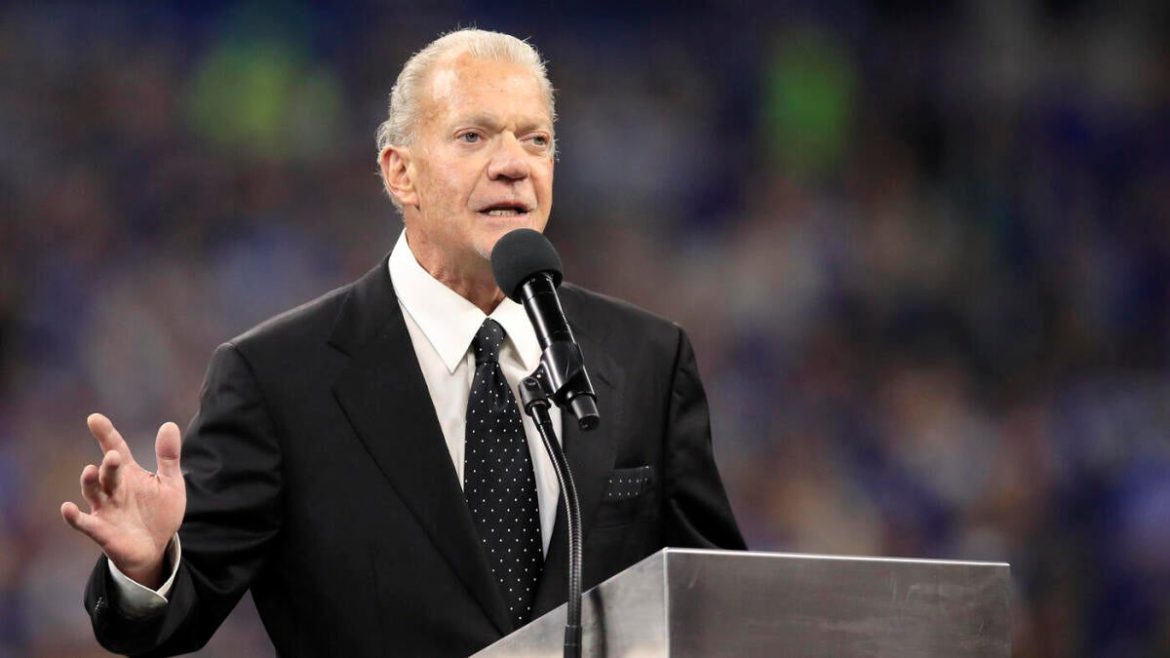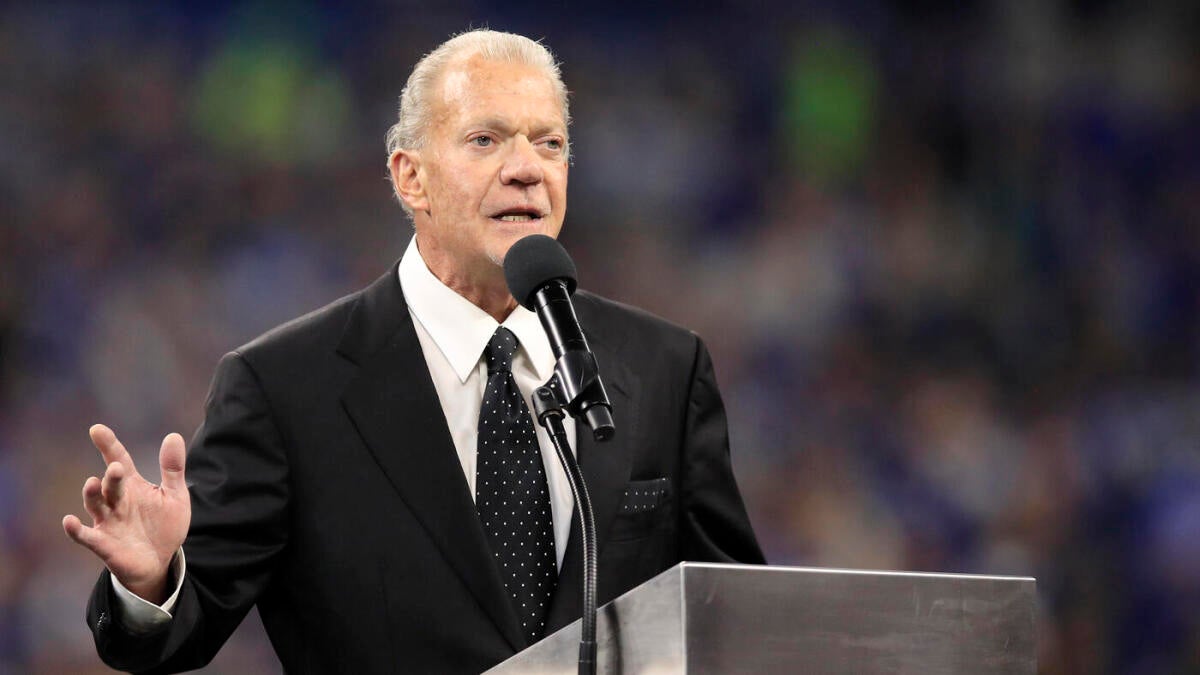The recent transition of ownership in the Indianapolis Colts franchise marks a significant chapter in the team’s storied history, as the reins pass from the late Jim Irsay to his three daughters. This event not only reflects careful legacy planning but also introduces new leadership dynamics for one of the NFL’s most recognized organizations. The unfolding story of the Colts’ ownership shift offers rich insights into family succession, organizational continuity, and the evolving role of women in professional sports franchise management.
Jim Irsay’s Legacy and the Foundation of Succession
Jim Irsay, who owned and managed the Colts from 1997 until his recent passing in May 2025 at age 65, was deeply intertwined with the franchise. Taking over ownership after his father Robert Irsay’s death, Jim’s nearly three-decade tenure witnessed some of the franchise’s finest moments, including a Super Bowl XLI victory and two AFC championships. Beyond his executive duties, he embodied a unique blend of leadership and cultural personality, known for his passion for football and distinctive presence in the league.
Critically, Jim Irsay anticipated the challenges associated with managing such a high-profile team. Beginning around 2012, he integrated his daughters—Carlie Irsay-Gordon, Casey Foyt, and Kalen Jackson—into ownership roles as vice chairpersons and co-owners. This gradual involvement over more than a decade signaled a strategic and deliberate transition plan designed to maintain stability and preserve the franchise’s values. By naming each daughter as a co-owner and assigning them meaningful leadership roles well before his passing, Jim ensured they would be acclimated to the responsibilities and complexities of NFL team ownership.
The New Leadership Triumvirate: Roles and Responsibilities
Following the formal announcement on June 9, 2025, the Colts revealed detailed ownership and management roles for Jim Irsay’s daughters. Carlie Irsay-Gordon has been appointed as the principal owner and CEO, reflecting the expectation that she will steer the franchise’s overall vision and strategic decisions. Casey Foyt assumes the title of Owner and Executive Vice President, while Kalen Jackson becomes Owner and Chief Brand Officer. This division of leadership roles not only honors their individual strengths but also mirrors a modern corporate governance approach, leveraging complementary skill sets to guide the team forward.
Carlie, the eldest, has long been a public face of Colts ownership and will likely carry the mantle in major league meetings and external engagements. Casey’s position as executive vice president will place her at the heart of operational decision-making and internal management. Kalen’s role focusing on branding and marketing aligns with evolving league priorities around fan engagement, global reach, and franchise image enhancement.
The daughters’ lifelong exposure to Colts culture—growing up immersed in the NFL environment and actively participating in organizational affairs—equips them with a rare, innate understanding of both the game’s demands and business intricacies. This foundation should ease the leadership transition and sustain continuity in the Colts’ competitive and cultural identity.
Implications for the Indianapolis Colts and the NFL
The shift to a trio of female owners at the helm of an NFL franchise is unusual and holds symbolic significance amid a league that, historically, has been predominantly male-owned and managed. The Irsay sisters’ ascendance highlights the gradual diversification of leadership in professional sports, potentially inspiring more inclusive governance structures.
From a franchise standpoint, this ownership model offers both opportunities and challenges. The collective leadership can foster innovative decision-making, as responsibilities are shared and complemented by diverse perspectives. However, it also requires clear communication and aligned visions to avoid internal conflicts, a common risk in family-owned enterprises.
Fans and analysts have generally expressed confidence in the daughters’ capability to honor Jim Irsay’s legacy while charting their own course. Insider commentary suggests that the franchise is “in excellent hands,” given their extensive experience and demonstrated commitment. It remains to be seen how the daughters will shape personnel decisions, commercial partnerships, and community engagement initiatives—the areas that often define a franchise’s identity beyond the scoreboard.
Family Ownership in Sports: Continuity and Transformation
The Colts’ ownership transition encapsulates broader themes in sports franchise stewardship, where family dynasties have historically been both stabilizing and evolving forces. The Irsay family’s stewardship represents a form of legacy preservation, with the new generation prepared to uphold traditions while responding to contemporary challenges such as digital transformation, expanded fan demographics, and league-wide shifts toward entertainment value.
Moreover, the sisters’ leadership signifies a meaningful evolution in gender roles within professional sports ownership. Their prior experience as vice chairs since 2012 was more than nominal, preparing them to handle the nuanced realities of NFL franchise management. This transition may set a precedent for other teams considering family succession plans involving women in principal leadership roles.
Conclusion: A Moment of Transition and Promise
The Indianapolis Colts’ passage from Jim Irsay to his daughters is more than a change in nameplates; it symbolizes continuity amidst change, honoring a legacy while embracing new leadership paradigms. Carefully planned and executed, this transition embodies a thoughtful blend of tradition and progress, positioning the Colts for a future where family ties and professional expertise meet at the intersection of sport, business, and culture.
As Carlie Irsay-Gordon, Casey Foyt, and Kalen Jackson take the helm, their stewardship will be closely watched—not just for wins and losses, but for how they redefine franchise leadership in the NFL. Through their collective vision and diverse capabilities, the Colts stand poised to address the evolving landscape of professional football, threading past glories with future aspirations in a way only a legacy-rich family ownership can.





